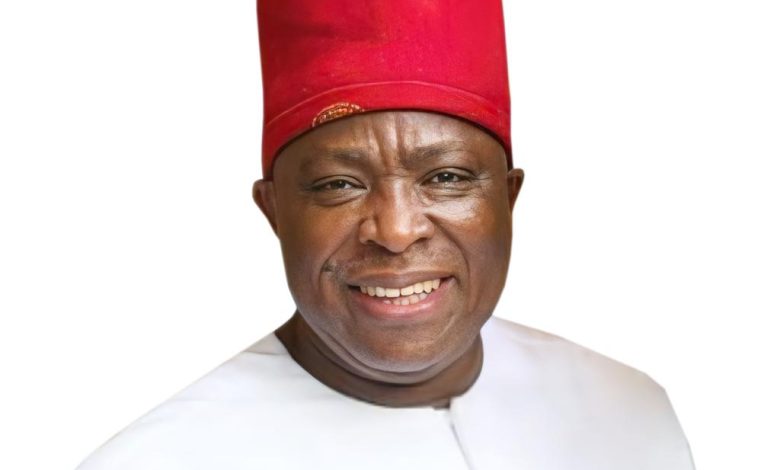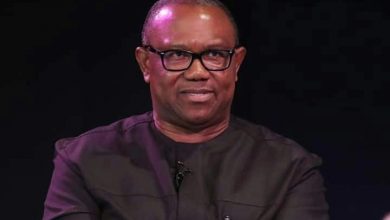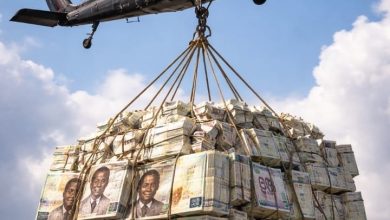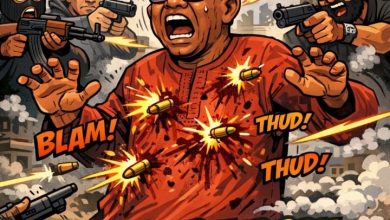
By Chekwube Nzomiwu
The recent election of *Senator Victor Umeh OFR,* representing Anambra Central as the Deputy Chairman of the Southern Senators Forum (SSF) would obviously not surprise anyone familiar with Nigeria’s political trajectory in this Fourth Republic. From being a foundation member of the Peoples Democratic Party (PDP) in 1999, he joined forces with other progressives in 2003 to form the All Progressives Grand Alliance (APGA). They nurtured and built APGA to become the third largest party in the country.
During the heydays of APGA, Umeh served the party at different times as the National Treasurer and National Chairman. Under his Chairmanship, APGA enlarged its coast from Anambra State to neighbouring Imo State. It controlled power in the two biggest states of Eastern Nigeria until the then Imo State Governor, Rochas Okorocha defected to the All Progressives Congress (APC), the party in charge at the federal level.
After serving as the National Chairman of APGA, Umeh contested his first election into the Senate on the same platform in 2015. The Independent National Electoral Commission (INEC) declared Uche Ekwunife of the Peoples Democratic Party (PDP) as the winner of the election. Convinced that he won the election, Umeh went to the tribunal and recovered his mandate from Ekwunife.
Although he eventually had a short stay at the Senate the first time, he gave a good account of himself. His achievements included the empowerment of over 150 constituents through the National Directorate of Employment (NDE), issuing of scholarships to indigent students and initiation of several bills, bordering on youth development and empowerment.
In spite of the antics of intruders who did not see APGA beyond a vehicle for riding to power, the party maintained its position in Nigeria’s political landscape until the 2023 general elections, when it was displaced by the third force tsunami of the Labour Party (LP). Being a dynamic Politician, Umeh left APGA to contest for Senate on LP platform and secured a landslide victory.
As a ranking Senator, he was appointed Chairman, Senate Committee on Diaspora and Non-Governmental Organisations, and Vice Chairman, Committee on Lands, Housing and Urban Development. His insightful contributions during plenary and executive sessions, earned him appointment into some important ad-hoc committees of the Senate.
During his campaign, he promised to speak for the South East like his former leader, the late Ikemba Nnewi, Dim Chukwuemeka Odumegwu Ojukwu, under whose cover he fought many battles to ensure APGA’s survival. He remains unwavering in his resolve to speak for Igbos. In his capacity as Vice Chairman, Senate Committee on Lands, Housing and Urban Development, he personally visited the office of the Federal Housing Authority (FHA) in Abuja in November last year to intervene in the demolition of Igbo property in Lagos.
Read Also: Court orders Umeh to repay N136m bank debt with interest
He equally supported the bill for the establishment of the South East Development Commission (SEDC), which he believed, would aid infrastructure development in the region since the end of the civil war in Nigeria. The Senate passed the bill last month after it was read a third time, with the endorsement of majority of Senators.
It is important to point out that his struggle for the protection of rights of Ndigbo in Nigeria predated his first election into the Senate. As the National Chairman of APGA, he prioritised the interest of the South East region. He spoke against the political marginalisation of Ndigbo in Nigeria, the poor state of eastern road network, insecurity and erosion menace ravaging the region.
Umeh promoted a united Nigeria, anchored on the principles of equality, justice and fairness. As a delegate to the 2014 National Conference convened by President Goodluck Jonathan’s administration, Umeh raised a “Point of Order” during the debate seeking for five percent of the national budget for the reconstruction of insurgency ravaged North East region. He demanded that the reconstruction should start from Igboland, since there was no reconstruction of Igbo property destroyed during the civil war in spite of the declaration by the then Head of State, Gen. Yakubu Gowon of “No Victor, No Vanquished.”
Consequently, the conference agreed that the reconstruction must take place everywhere insurgency occurred in Nigeria, including Igboland, the main theatre of the bloody Nigerian-Biafra civil war, which lasted for about 30 months.
At the current Senate, Umeh has once more proved his mettle as a seasoned and experienced politician, and a quintessential lawmaker.
*Nzomiwu writes from Awka, Anambra State.*



